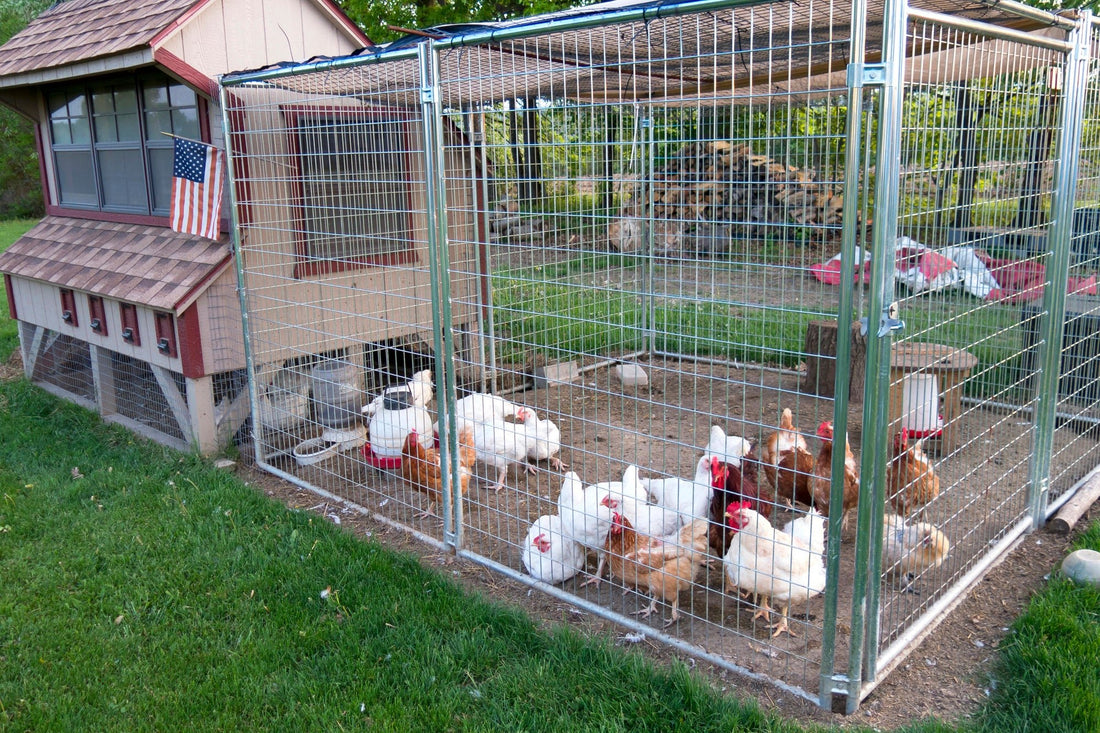Ensuring the safety and security of your chickens is paramount for any backyard flock owner. Predators pose a significant threat to chickens, ranging from opportunistic mammals and birds to cunning predators like foxes and raccoons. Implementing effective strategies to protect your chickens from predators is essential to safeguard their well-being and prevent potential losses. In this comprehensive guide, we'll explore various safety tips and strategies to fortify your chicken coop and run, keeping predators at bay and providing your feathered friends with a safe and secure environment.
- Know Your Enemy: Identifying Common Predators
Understanding the predators that pose a threat to your chickens is the first step in implementing effective protection strategies. Common chicken predators include mammals such as foxes, raccoons, coyotes, and weasels, as well as birds of prey like hawks and owls. Snakes, rats, and even domestic pets can also pose a danger to chickens. By familiarizing yourself with the predators in your area and their behaviors, you can better tailor your defense measures to deter and repel potential threats.
- Secure Coop Construction: Building a Predator-Proof Fortress
Investing in a well-constructed and predator-proof chicken coop is crucial for protecting your flock. Ensure that the coop is built from sturdy materials such as heavy-duty wire mesh or hardware cloth with small openings to prevent predators from gaining access. Reinforce vulnerable areas such as doors, windows, and vents with additional locks or predator-resistant hardware. Install a sturdy roof to prevent aerial predators from swooping in from above. Consider burying wire mesh or hardware cloth around the perimeter of the coop to deter digging predators like foxes and raccoons.
- Nighttime Security: Locking Down the Coop
Predators are most active during the cover of night, making nighttime security measures essential for protecting your chickens. Invest in predator-proof locks or latches for coop doors and windows, ensuring that they are securely closed and locked at dusk. Install motion-activated lights or predator deterrent devices around the coop to deter nocturnal predators from approaching. Consider using electronic predator deterrents that emit sounds or lights to scare off potential threats. Regularly inspect the coop for signs of wear or damage and promptly repair any vulnerabilities to maintain its integrity.
- Predators from Above: Shielding Chickens from Aerial Threats
Birds of prey such as hawks and owls pose a significant threat to free-ranging chickens, especially in open or rural areas. Protect your chickens from aerial predators by providing overhead cover in the form of trees, shrubs, or artificial structures such as covered runs or netting. Install scare devices such as reflective tape, predator silhouettes, or predator balloons to deter birds of prey from targeting your chickens. Consider keeping chickens confined to covered runs or enclosures during peak hunting times, such as dawn and dusk, when aerial predators are most active.
- Fencing Fortifications: Building a Predator-Proof Barrier
Fencing is an effective deterrent against ground-dwelling predators and can help secure your chicken coop and run. Use sturdy fencing materials such as welded wire or chain-link with buried aprons to prevent digging predators from burrowing underneath. Ensure that the fencing is tall enough to deter jumping or climbing predators and that it extends at least several feet above ground level. Consider installing electric fencing or predator-proof netting around the perimeter of the coop and run for added protection. Regularly inspect the fencing for damage or signs of tampering and make repairs as needed to maintain its effectiveness.
- Companion Animals: Utilizing Guardian Animals
Guardian animals such as dogs or livestock guardian breeds can serve as effective deterrents against predators and provide an additional layer of protection for your chickens. Introduce a well-trained and predator-savvy dog to your flock, ensuring that it is familiar with chickens and understands its role as a protector. Livestock guardian dogs are particularly adept at deterring predators and can form strong bonds with chickens, actively patrolling the area and warding off potential threats. Alternatively, consider keeping geese or guinea fowl, which are naturally territorial and vocal, alerting you to the presence of predators and deterring them from approaching.
- Secure Food Storage: Eliminating Attractants
Properly storing chicken feed and other attractants can help reduce the risk of attracting predators to your property. Store feed in secure containers or bins that are inaccessible to rodents and other pests, eliminating a potential food source for predators. Avoid leaving food scraps or leftovers outside, as these can attract scavengers such as raccoons and possums. Keep the area around the coop and run clean and free from debris, reducing hiding spots for predators and minimizing the likelihood of attracting unwanted visitors.
- Vigilance and Monitoring: Observing Chicken Behavior
Regular monitoring and observation of your chickens' behavior can provide valuable insight into potential predator threats. Keep an eye out for signs of distress or agitation among your flock, such as excessive vocalization, flapping, or pacing. Look for evidence of predator activity around the coop and run, such as tracks, droppings, or attempts at entry. Consider installing security cameras or motion-activated trail cameras to monitor activity around the coop and identify potential predators. By remaining vigilant and proactive, you can quickly detect and respond to predator threats, minimizing the risk to your chickens.
Protecting Your Precious Flock
Implementing effective safety tips and strategies is essential for protecting your chickens from predators and ensuring their safety and well-being. By knowing your enemy, securing coop construction, enhancing nighttime security, and employing fencing fortifications, you can create a predator-proof fortress for your flock. Utilizing guardian animals, securing food storage, and maintaining vigilance through regular monitoring can further enhance the safety of your chickens. By taking proactive measures and remaining vigilant, you can provide your feathered friends with a safe and secure environment to thrive and flourish.

